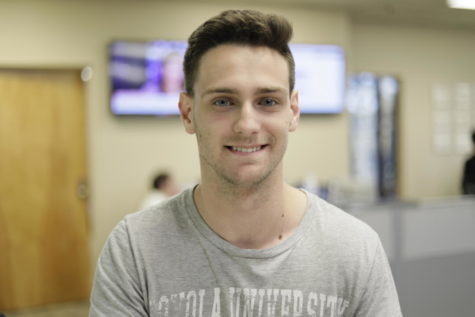Pancreatic cancer has big impacts at low rates
April 1, 2019
Approximately 1.6 percent of people will be diagnosed with pancreatic cancer in their lifetime, according to the National Cancer Institute.
Game show host Alex Trebek recently announced that he is among that number, with a diagnosis that the cancer had already reached stage four. Though he said in an announcement that he plans to beat the illness, the odds are stacked against him.
According to the National Cancer Institute, only about 8.5 percent of people diagnosed survive past five years. And for some people diagnosed, it can be a matter of months.
“We knew we had time with her, but the million-dollar question was always ‘how long?’” said Therese Duke, who recently lost her mother to the illness. “In her case, it was two months.”
According to Duke, her mother, Gloria Sehrt, was diagnosed when she noticed that something was off with her blood work. After a follow-up appointment, she received the diagnosis.
“It was a shock to all of us. Mom was 91, you know something’s going to happen at some point. But we had no idea it was going to be pancreatic cancer,” said Duke. “You never expect you’re going to be without your mom, no matter how old you get.”
According to William Robinson, the director of the Office of Clinical Research at the Tulane Cancer Center, pancreatic cancer is so deadly because by the time it’s caught, it’s often too late.
“There really is no good screening test for it. And, unfortunately, most of the symptoms that are associated with it don’t occur until the disease is fairly advanced,” he said. “We don’t usually find it until it is grown or advanced to the point where it is extremely difficult to treat successfully.”
According to Robinson, there isn’t a specific risk factor associated with the disease.
“Most people who get pancreatic cancer have no family history, no genetic markers for it. Not that we know of, at any rate” he said. “So, unfortunately, it’s mostly sporadic.”
In 2016, Louisiana had the fifth highest rate of pancreatic cancer instances in the U.S., according to a report from the Louisiana Tumor Registry. While it’s hard for Robinson to say exactly what’s causing these high rates, he said that the state’s high rates of smoking and drinking aren’t helping.
“We don’t know specifically. One of the potential risk factors is actually alcohol use. Louisiana is right up there in its use of alcohol per capita. That may be a part of it,” he said. “We also have a higher risk of smoking than most states. While that’s not a major risk for pancreatic cancer, it is a minor risk factor for lots of different cancers.”
According to an annual report from the United Health Foundation, 27 percent of people 18-44 smoked, above the national average of around 19 percent. The rates of binge drinking were also slightly higher in Louisiana than the national average, with the state sitting at 24.9 percent versus the national average of 24.4 percent among the same age group.







